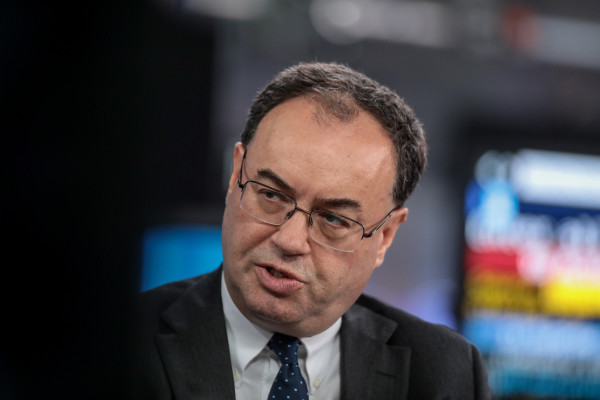

Neil Woodford suspended dealing in his £3.75bn Woodford Equity Income fund on June 3 for 28 days amid liquidity concerns after the Kent County Council pension fund informed Woodford Investment Management that it was withdrawing £255m.
Since then Mr Woodford has been working hard to sell shares to find the money for any redemptions for when the fund reopens.
But in the past two weeks both MPs and the regulator have waded into the debate about the events leading up to the suspension.
Today (June 18), Andrew Bailey, chief executive of the FCA, wrote a letter to Nicky Morgan, the chairwoman of the Treasury committee, confirming that the regulator had opened an investigation into the Woodford debacle, after increasing its supervision of the fund in February last year.
This came in response to Ms Morgan's letter to the FCA asking for a timeline of the FCA’s supervisory contact with the fund or management; and a timeline of the FCA’s supervisory contact with the authorities in Guernsey, in relation to the fund.
Mr Bailey revealed the regulator had been in contact with Link Fund Solutions, which is the ‘authorised fund manager’, since February last year regarding issues related to liquidity.
In particular it found that on two occasions in February and March 2018, the fund had breached the 10 per cent limit on the maximum proportion of unlisted securities it is allowed to hold.
"Following our engagement, these breaches were each notified to us as resolved within a timeframe we had agreed with Link," Mr Bailey stated.
From April to December 2018, the FCA then held monthly monitoring discussions with Link in relation to the deteriorating liquidity position within WEIF.
Following this engagement, Link revised its liquidity risk management measures to seek to ensure it could meet redemptions on demand and no further breaches of the 10 per cent limit were notified, Mr Bailey wrote.
He added the fund became less liquid between June 2018 and April 2019. However, it did not breach any internal thresholds during this period and was able to meet redemptions throughout.
The FCA had also been notified of the fund's intention to switch shares between Woodford's Patient Capital
and WEIF in February this year.
During its assessment it then became aware of certain securities being listed on The International Stock Exchange (TISE) in Guernsey, after which it met Link to discuss its management of the WEIF, "which particularly focused on issues related to the fund’s exposure to illiquid assets, including those reported to be listed on TISE".
From April 24 the FCA received daily reports of all flows into and out of WEIF.
It stated during May 2019, net outflows averaged one per cent of NAV per week. But then the redemption requests on May 31and June 3 amounted to £296m, representing 8.2 per cent of NAV, with the fund holding no cash at the time, which eventually led to its suspension.
Mr Bailey said the FCA was notified on that day.
Link Fund Solutions, the authorised fund manager, deemed that "the suspension was necessary due to the risk that, in the event the fund did not suspend, assets would have to be sold at process below current values and that the resulting composition of the fund’s assets would be more illiquid".
Mr Bailey said: "Neither outcome was deemed to be in the best interests of remaining investors."
Responding to the letter, Ms Morgan said: "I am grateful to Mr Bailey and the FCA for responding to my letter in good time, and note that the FCA has opened an investigation into the events that led to the suspension of the Woodford Fund.
"The committee will examine this letter and wider issues brought into focus by the suspension of the Woodford Fund when we take evidence from Mr Bailey and Mr Randell (chair of the FCA) next week."
Mr Woodford wrote to advisers with clients invested in the suspended Woodford Equity Income fund on June 12, urging them to stick with him when the fund reopens.
In the letter, Mr Woodford apologised for the fund being suspended and acknowledged it had happened because of his investment philosophy.
He said suspending the fund meant he could obtain better sale prices, as he would not be a forced seller of stock.
Ms Morgan had also asked Mr Bailey whether fund houses that suspend redemptions should be allowed to continue to charge a management fee.
This came after platform Hargreaves Lansdown called on Mr Woodford to drop his fee after it itself dropped the platform fee for clients invested in the fund.
Mr Bailey told Ms Morgan that there was no requirement on fund managers to reduce or waive entirely their management fees while a fund is suspended, although a firm may choose to do so.
In his letter, Mr Bailey said: "There are good arguments for waiving fees during a suspension as a gesture of support to investors. That said, management activities continue during suspension.
"Clearly, the fund manager continues to accrue operational costs during this period, including the need to pay staff and rent for premises and so forth.
"However, decisions around fee structures are for the fund manager to take."
Mr Woodford’s representative has previously said: "The company will continue to charge the fee as the fund remains actively managed and we focus on repositioning the portfolio."
The fee, which ranges between 0.5 per cent and 0.75 per cent depending on which platform a client holds the fund on, is used to run the company as a whole.
Mr Bailey will appear before the Treasury committee on June 25.
amy.austin@ft.com
What do you think about the issues raised by this story? Email us on fa.letters@ft.com to let us know




